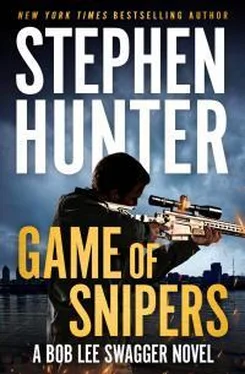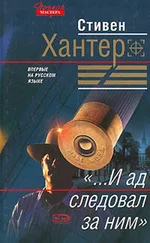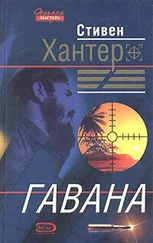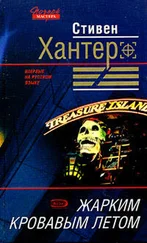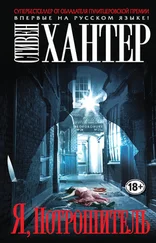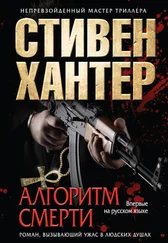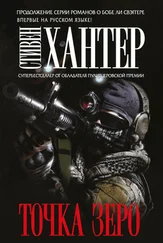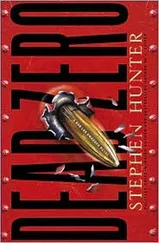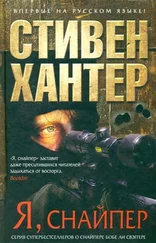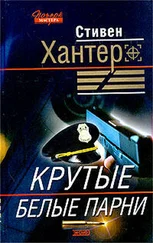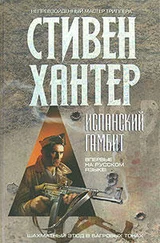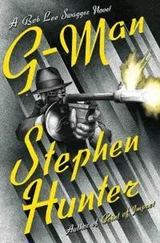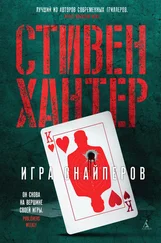“Yeah, and, moreover, most mail-order places won’t ship to post office boxes, only to residential addresses. But it’s not a rigorous system. The guy at the sending end isn’t going to check. If it’s just an address, he doesn’t have the time or the interest to make sure the street address is a house, not some retail thing.”
“Well, let’s run the credit card number that paid for all this stuff.”
Another quick discovery: Brian Waters again.
One man with six addresses, each FedEx Office unknown to the other five, had ordered all the goods.
Swagger went to his list of competitors.
“He placed highly in the thousand-yard championships at the NRA range in New Mexico. He’s a shooter. They had to use him as the fulcrum of their operation, alive or dead, probably dead.”
He thought of this fellow. Shooting geek, maybe a little private money, lived for nothing more than putting five .338 bullet holes inside a couple of inches at a mile. To what purpose? If you weren’t a sniper, it had no purpose, it was just damned hard to do, and he had decided he’d become one of the few men in the world who could do it on demand, off a cold barrel. That’s all his life was: he lived in a world of numbers and weights, and certain refined body movements, and one night someone snuck in and put a silenced bullet through his brain. They took his rifle and reloading stuff and shipped it secretly to Syria, where a cold-minded fellow named Juba became him, mastered his rifle, learned his tricks, all with some dark purpose in mind that would leave a lot of other people dead. Swagger shivered.
Mrs. McDowell wants you for her son. The Israelis want you for the bus. The Marine Corps wants you for Baghdad. But I want you for the shooting geek, who never did no harm and got sucked up and spit out for something he couldn’t understand.
“Now he’s here, he’s got the rifle, he’s used the credit card to reorder the stuff he had in Syria but was too bulky to smuggle in. So they’ve been replacing it.”
“Whoa!” she said. “Isn’t that leap a little far?”
“No,” Swagger said. “His name was Brian A. Waters. In the burning shop in Syria, I saw his gun case in the second before the flames took it. I saw the two initials, A and W , the B was already roasted. They need a pigeon. He’s the pigeon. Somehow, some way, this is going to turn on him. I mean, what good is an assassination conspiracy without a Lee Harvey Oswald?”
The ranch
The jolt of landing awakened him. No dreams of American snipers this time. Instead, he saw the blank look of existential nothingness on Jared’s face as he went down, bullet in head. This was fiction. As Jared had been turned, Juba had not seen the expression, and the flash of the pistol’s cartridge from the muzzle did not illuminate it. Still, awaking, he could not shake the grief and the hurt, which surprised him. Mission discipline, he ordered of himself: push it all out, make it go away.
He shook his head and came fully awake as the plane came to a halt.
“Enjoy the nap?”
“Yes.”
“It’s not far now.”
The steward opened the door, sliding it sideways on its rollers, then pushed a button to lower the stairs. As the door cracked, bright light flooded in. Juba blinked, but felt the rush of natural air, warmth with perhaps a tang of grass to it, a suggestion of wildflowers. He stepped out to cooler temperatures and a sense of being engulfed by mountains. They were everywhere, green and lofty, some cragged with solemn old faces, others, higher up, still capped with snow. It was a small airport somewhere, presumably for rich people, as the other planes on the ground all seemed to be jets, with swept wings and sporty paint jobs featuring impressions of blur, speed, lightning, and other symbols of modern, comfortable transportation for the elites.
A Land Rover waited, with its driver inside. Next to it sat a Mercedes S, with four men deployed, well-dressed, but of the thick variety that reminded him of the American contractors in Baghdad, standing about, hands loose. Bodyguards, they’d have weaponry secured in the vehicle, quick to come out or packed against their bulked-up bodies. All wore sunglasses, all had snail earplugs, all watched warily, not the arrival but the horizon, for threats.
“Now, my friend,” said Menendez, “it’s just this last little bit, and you will have everything you require, most of all absolute security and privacy, as required.”
“I am very impressed with your preparations,” said Juba.
“We are bigger than many Fortune 500 companies,” said Menendez. “I am proud to say our growth, though stymied at times, has been remarkable in the past several years. There is money for everyone. I know money means little to you, and politics everything, but it is only with money that political ends may be achieved.”
“True. But that’s not my concern. I leave it to others. Allah has seen to give me a gift for a certain kind of war and I will use it in the infidel heartland to strike a vital blow.”
“And that is why I am so eager to assist. The money, it’s nothing. It’s the ends, really, that make all this so interesting.”
They climbed into the Land Rover, and the S fell in behind. The convoy set off along roads through a valley, beneath the peaks on either side, and again, in more time than he expected, drove and drove and finally reached a gate of no particular interest.
“From the road: nothing,” said Menendez.
The car passed through and rolled down a one-lane blacktop, climbed a small hill. There it encountered a second perimeter, this one of barbed wire, with a sentry post at its locked gate. Two men with M4s, also sunglassed and earplugged, operated the gate to let the two cars pass. They surmounted the crest and started downward.
Juba had no sense of architecture and had no way of knowing the elegant log mansion in the valley before him was famous and dated back to Teddy Roosevelt’s time, though of course it had been much upgraded. In fact, TR had stayed there on one of his many western hunting trips. To Juba, it was just an immense log house, and his idea of a palace involved marble columns, cupolas, and gold fixtures. This building reminded him of cowboy movies he had seen as a boy, all juts and angles, with gables and balconies in roughly cobbled wood.
Jorge the translator was kept busy, as this Menendez, after so much silence, had much to say.
“If the editors of Architectural Digest understood who owned the famous Hanson Ranch, they’d be stunned. Especially if they comprehended that it was their own children’s enthusiasm for our product that paid for it.”
The grandee was a man of boastfulness. He could not help himself.
“I own several houses — Mexico City, Acapulco, Cap d’Antibes, the U.S. Virgins, even Malaysia — but this is my favorite. It is very private. A small army guards it. Come, you’ll see.”
Juba had no interest in a tour, but he had been raised in the tradition of hospitality and pretended to appreciate the rooms through which he was led. He saw lots of tribal patterns on the walls and floors, brown-leather furniture of the heavy sort, paintings of bears and mountain lions and prairies and cowboys, sculptures of animals — what was “an original Remington”?—and a glistening gun cabinet, presumably full of the famous American Winchesters.
“This will interest you,” said Menendez.
He opened the gun case and pulled a weapon out — but it was no Winchester.
“I keep it to remind me of how I got here,” Menendez said. “Of course, it reflects the gauche tastes of the Mexican peasantry, but what it lacks in class it makes up for in earnestness.”
Читать дальше
